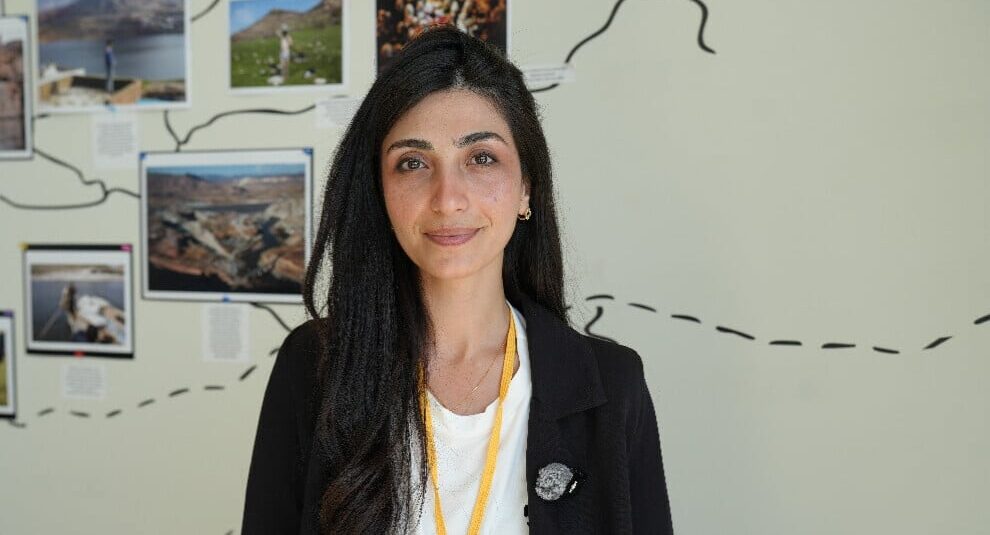Gulistan Isa said that the region faces a deepening water crisis as states use water as a tool of capital and war.
As in many parts of the world, the water crisis in the Middle East has reached alarming levels. In regions torn by war, grave crimes against humanity are being committed, while nation-states use food and water as tools of embargo and control over peoples.
Northern and Eastern Syria are among the areas most affected by this crisis. Due to Turkey’s embargo on the Euphrates River, people in the region have been deprived of access to clean water, and the wells they relied on for years have now become inaccessible because of mercenary groups.
Gulistan Isa, Secretary of the Hasakah (Hesekê) Water Campaign, emphasized that the problem is a political one, calling for the issue to be heard globally and for urgent solutions to be developed.
At the second Mesopotamia Water Forum, Isa highlighted the severe water crisis in northern Syria, stressing that water has been stripped of its status as a human right and turned into a weapon used against civilians. Isa said, “Water is the right of all peoples and all nations. But unfortunately, in Syria today, access to clean water has become almost impossible.”
Water used as a weapon
Gulistan Isa said that the cutting off of water and attacks on pumping stations have placed a heavy burden on municipalities, forcing people to migrate in search of clean water. Isa said, “People’s economic situation is very poor, and they cannot afford to buy clean water. As a result, people either drink contaminated water or abandon their homes. For nearly four years, almost one million people in the city of Hasakah have been struggling with thirst. Attacks on water stations in the region have left people helpless. Because mercenaries targeted the main water station, residents have been trying to survive without water for four years. Our reason for attending this forum is to make this crisis known to the world. We want all countries to hear our voices. Water is everyone’s right, and no one should be deprived of it.”
Thirst forces people to migrate
Isa added that the water crisis has gone beyond being merely a local issue, turning into a political matter between states. She said, “To build a new Syria, the water problem must first be solved. People are being forced to migrate because of thirst. The current system encourages this displacement. If water, services, and energy are provided, everyone who has migrated will return to their lands.”
Water issue becomes political
Gulistan Isa noted that the water crisis has also become a weapon of war. Isa said, “Today, major wars are taking place across the world, and in these wars, war crimes are being committed mostly against civilians. Food embargoes are imposed, water is cut off, and people are left without it. Depriving a population of water is never humane. When we reach out to states about this issue, they always tell us, ‘This is a political problem.’ Yet people only want to live under humane conditions. However, this water issue, which has turned into a political matter, is pushing people toward both displacement and an unhealthy life.”
Wells under mercenary control
The Secretary of the Hasakah Water Campaign added that water no longer flows from the Tigris and Euphrates rivers. Isa also said, “It used to, but for years now we have not seen any water from the Tigris or the Euphrates. Even the rivers are being blocked. People once drew water from wells, but that is no longer possible. The wells are now under the control of mercenaries. We can no longer even access well water.”

